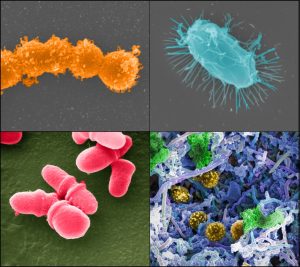2024-03-25
6:00 PM - 7:30 PM
HS436 & VooV (Tencent Meetings)
COM@xjtlu.edu.cn
Details
Monday, 25 March 2024, h. 18:00-19:30
VENUE: HS436 & VooV (Tencent Meetings)*
MODERATOR: Dr Marco Pellitteri
DISCUSSANT: Dr Simon Schweighofer
For any enquiries, please contact: COM@xjtlu.edu.cn
Abstract
In spring and summer of 2023, in English-language academic papers, blogs, and online news sites, a new discourse emerged around AI, initially around large language models or LLMs (such as ChatGPT) and then, towards the end of the summer, in relation to AI more generally, including visual models such as Midjourney and Dall-E. This centred on the idea that by training on their own outputs, LLMs would become progressively of poorer quality until they would be effectively useless (a phenomenon quickly termed “model collapse”). In this paper I look at the anthropomorphic and zoomorphic metaphors used in this discourse, which include ideas of human forgetting (and diseases of memory such as dementia), the image of the Ourobouros—a mythological snake eternally eating its own tail—and which draws on very old cultural anxieties and taboos around cannibalism, poisoning and contamination, and degeneration. How helpful is this discourse for understanding the problems with AI? What does it reveal about the limitations of our ability to manage and comprehend contemporary technology?
Biography
Michelle Henning is Professor in Photography and Media at the University of Liverpool. She writes on the history of photography as well as on new media and culture more broadly. Her recent publications include Photography: the Unfettered Image (London: Routledge, 2018); “Kind of a: Social Media Photography and Emotion” (in Networked Images in Surveillance Capitalism, Special Issue of Digital Culture & Society, 2022); and “Feeling Photos: Photography, Picture Language and Mood Capture” (in Tomáš Dvořák and Jussi Parikka, editors, Photography Off the Scale, Edinburgh: Edinburgh University Press, 2021).









